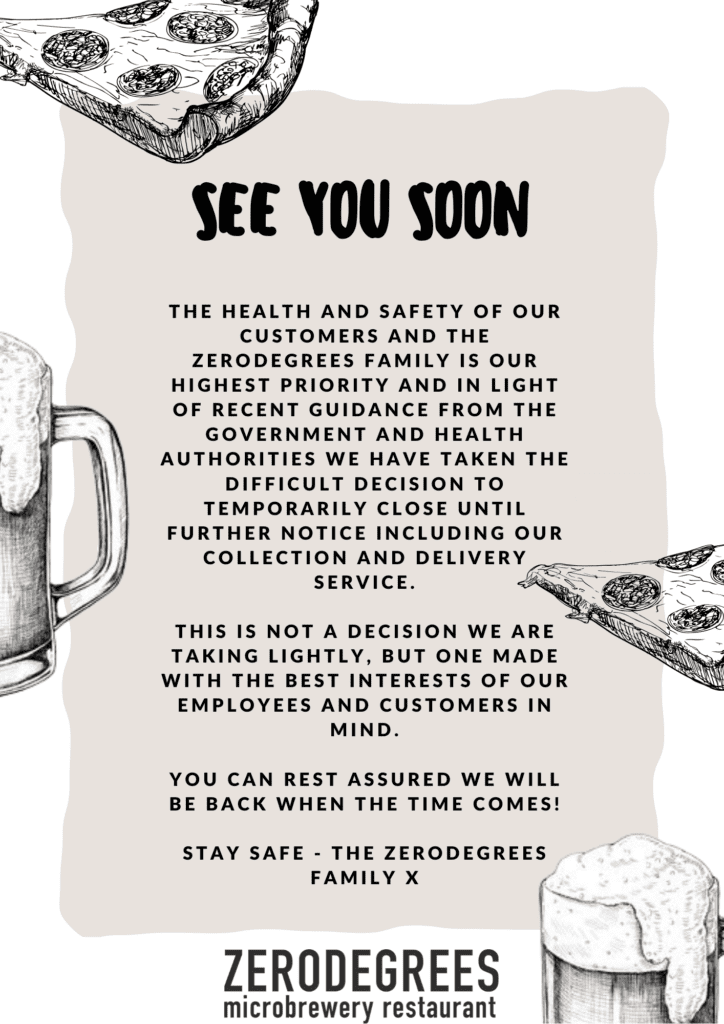On a sunny weekday evening overlooking the gorgeous green heath, Rob Evans, master brewer at Zerodegrees in Blackheath, endeavours to give me (more of a wine drinker, who pretends to know about craft beer by ordering anything from the Camden Town Brewery at the pub) and my friend Zena (a firm believer in gin o’clock) a bluffer’s guide to craft beer. ‘The variety of hops used makes a huge difference,’ he explains. Hops, FYI, are flowers from the hop plant, used both for flavour and as a stability agent. ‘The explosion in the popularity of certain beers actually means there’s a pressure on the harvest,’ he adds. ‘Poor yields in the US in 2015 meant that strains like Amarillo, Citra, Simcoe and Mosaic took a huge hit and many brewers had to either change their recipes or go without.’ Clearly, we realise, there’s more to this craft beer lark than pulling a pint of Fosters.
The phenomenon that is craft beer is believed by some to have gained ground back in the 70s, with brands like Sierra Nevada and Anchor Brewing creating bold, flavoursome beers with far more punch than your average bottle of Bud. These days, there seem to be aficionados popping up left, right and centre. For those of you who have not yet been fully initiated into the weird and wonderful world of hops and kegs, Evans is quite the expert – and as well as fermenting beer on site and providing beer pairings, he can even suggest the perfect pint based on your preferences in wine.
Working our way down the list of five recommended core beers, we surprise ourselves with our own preferences. The black lager, which we were more than a little wary of, scored high, with caramelised, roasted malts and aromatic chocolate and coffee flavours. It’s delicious when paired with dessert.
The mango Belgian fruit ale, however, pipped it to the post for its delicate fruity notes. It’s balanced, and apparently although the malt in it is disguised, still has a touch of ale about it. In any case, it tasted summery and fresh. It was ideal paired with my kilo pot of mussels with fries and lobster bisque, and would be equally lovely with the seafood linguine. ‘Fruit beer doesn’t have to be too sweet,’ says Evans. ‘It’s all about dry hops. To get a more aromatic beer, brewers will add in dry hops near the end of the brewing process so it jumps out of the glass. Unsurprisingly, that’s called dry hopping.’
If you’d rather a fruity taste didn’t interfere with your food, we also liked the classic Pilsner – it’s light and makes for easy drinking although, ironically, it’s the strongest of all. Czech Pilsner-style beers are often more herbaceous, grassy and citrussy, and are best paired with salads or risottos. We also enjoyed the Wheat Ale, and although the rich malt flavour of the Pale Ale wasn’t such a hit with us, it’s won awards and is amazing with a spicy wood-fired pizza (so it might just be us).
If you’re passing, we highly recommend that you drop by: Evans will happily offer you a tour of the brewery itself. ‘If anyone comes here to eat they are more than welcome to have a look around. I’m really keen to emphasise that it’s a working brewery,’ he says. ‘We use four different yeasts and we give our beers between four to 12 weeks of cold conditioning so that it matures to perfection.’ And a cold pint on the patio overlooking the heath on a late summer or early autumn evening, we decide, is perfection itself.


